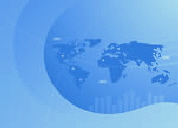Civil Society and Democratic Values in the GCC:
A Synthesis of Political Culture, Socioeconomic Development and International Policy
with the Challenge of Promoting Democracy
Andy Spiess1 & Mohamed Al-Roken2
1University of Hamburg, Department of Economics and Policy, Center for International Relations, Spiess (at) ndrd.org
2Professor of Public Law, United Arab Emirates University, Faculty of Shariah & Law, bushra@uaeu.ac.ae
Abstract
As an epiphenomenon of social capital, the emergence of a vigorous civil society as the key component to building and maintaining democratic stability and performance has been increasingly emphasized in development theory during the last few years. Social capital in general refers to the norms and networks that promote relationships of mutual acquaintance and recognition between individuals. Increasing evidence shows that this form of more or less institutionalized social cohesion is critical for human security as well as sustainable human and economic development. While the formation of social capital promotes the kind of pluralistic associational life which is necessary for the success of limited government and a stable liberal democracy, it is also is a byproduct of religion, tradition, shared historical experience and other types of cultural norms. Thus, while awareness of social capital is often critical for analyzing development, it is difficult to generate through public policy.
In the Gulf Cooperation Council (GCC) member states, the tremendous economic advancement that has taken place in the past years has not been matched by a similar process of human development, political reform and democratization. While social capital constitutes the cultural component of modern societies, which in other respects have been organized on the basis of formal institutions, the rule of law and rationality, co-operation between individuals, facilitating an understanding of the interconnectedness of society and interests within it, do not play a prominent role in the in the oil economies of the Arabian Gulf. Therefore apart from a few organizations serving professional interests, the establishment of functioning civil society by GCC nationals remains underdeveloped with only limited prospects that the pace for change will increase substantially in the coming years.
This paper aims to critically assess some of the more important barriers to the development of social capital in the GCC in the light of the overall process of democratization and political reform. While the mainstream arguments are based on the role of rentier economies and Islam, the study will also explore the nature of the legal system and its role in creating, structuring and shaping civil society and contribute to the debate on whether the "traditional" political culture of the Gulf societies, inhibit the development of participatory politics. While the main focus will be on the GCC, there will be reference to the experiences of other Arab or Islamic countries where relevant. Finally in recognition of a more holistic approach, the "external" factors in Arab human development and foreign economic interests in the region should be considered in view to addressing these policy issues.


Alter Postweg 116a
D - 21220 Seevetal
Federal Republic of Germany
www.ndrd.org
phone: +971 50 7307274
phone: +49 172 5949747
fax: +49 4105 669234
e-mail: spiess (at) ndrd.org


Please
download CV
in PDF format
Paper presented at the NFU Conference 2006 on "Ethics, Human Rights and Development", Oslo, Norway, September 13-15, 2006
Workshop 13: Islam, Democracy and Development: Challenges for the Arab World